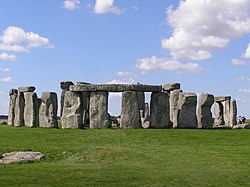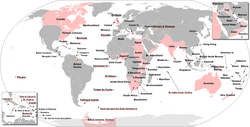
The United Kingdom, located off Europe's northwest coast, boasts a rich and diverse history encompassing ancient habitation, Roman conquest, invasions, colonial expansion, industrialization, the peak of the British Empire, post-war decline, and contemporary challenges like Scottish independence. Inhabited for tens of thousands of years, the U.K.'s story unfolds against the backdrop of remarkable events and cultural transformations. Its geography ranges from Scotland's mountains to England's lowlands, and its archives offer invaluable resources for genealogical research. Despite evolving challenges, London remains a global financial hub.
Research your ancestors on MyHeritage
Regions of the United Kingdom
The United Kingdom is made out of 4 countries:
At the same time, England is divided in nine official regions:
England has nine administrative regions formerly referred to as the Government Office Regions (GORs). From 1994-2011, these regions performed devolved functions of the government. The regions are necessary for statistical and administrative purposes and are purposely used to define regions for elections to the European Parliament.[1]
British Overseas Territories
The British Overseas Territories (BOTs) are 14 territories having a constitutional and historical ties to the United Kingdom that, while not part of the country, are considered sovereign territory of the UK. The permanently inhabited areas have varied degrees of internal self-government, with the United Kingdom still responsible for military, international affairs, and internal security. Four of these regions are mostly or solely populated by military or scientific personnel, while the remainder include sizable civilian populations.
- Akrotiri and Dhekelia
- Anguilla
- Bermuda
- British Antarctic Territory
- British Indian Ocean Territory
- British Virgin Islands
- Cayman Islands
- Falkland Islands
- Gibraltar
- Montserrat
- Pitcairn Islands
- Saint Helena, Ascension and Tristan da Cunha
- South Georgia and the South Sandwich Islands
- Turks and Caicos Islands
Crown Dependencies
The Crown Dependencies are three offshore island entities in the British Isles that are self-governing possessions of the British Crown. These are neither part of the United Kingdom nor British Overseas Territories, as they are classified as "territories for which the United Kingdom is responsible" rather than independent countries. The political development of each island has been mostly separate from that of the UK, albeit very similar; they are considered some sort of "miniature states with wide powers of self-government."
History of the United Kingdom

England and other parts of Britain have been inhabited for tens of thousands of years, but it was only as the last Ice Age came to an end that the island was permanently inhabited by modern humans. Advanced Neolithic societies developed here in the centuries that followed, as evinced by sites like Skara Brae on the Orkney Islands and Stonehenge in southern England. Variously Celtic peoples, most notably the Britons, lived here when the Romans first made contact with England in the time of Julius Caesar. The Romans refrained from conquering the region until the reign of Emperor Claudius (41 CE – 54 CE), but even then progress was slow and the Romans failed to pacify the Caledonians in what is now Scotland.[2]
In medieval times Britain experienced a wide range of incursions by foreign peoples bent on conquest after the Fall of the Roman Empire. These began with the Germanic tribes known as the Angles and Saxons in the fifth and sixth centuries CE, followed by the Danes and other Norse peoples during the Viking Age and culminating with the Norman Conquest of England under William the Conqueror from 1066 onwards. By this time the idea that the island of Britain was divided into three main polities, England, Wales and Scotland, had firmly emerged, though over the course of the period from the twelfth to the seventeenth centuries these were generally united under English domination through conquest and marriage alliances.[3]

In early modern times England began to emerge from being a peripheral power on the northern fringe of Europe to become one of the world’s pre-eminent powers. This was on the back of its developing mercantile and financial power and its colonial expansion, with English men and women settling colonies in North America and the Caribbean in the seventeenth century, followed by the conquest of much of India in the eighteenth and then the ascent to global empire in the nineteenth. At the height of the long reign of Queen Victoria (1837–1901) the sun never set on the British Empire and it ranged from Australia and New Zealand west to India and then large parts of Africa, as well as beyond to several Caribbean islands and Canada.[4]
The United Kingdom was not only the world’s pre-eminent imperial power in the nineteenth century, but also the workshop of the world as the Industrial Revolution had begun here in the 1770s. As such, in Victorian times Britain was the world’s foremost superpower and the Royal Navy commanded the world’s seas. However, that all began to collapse in the twentieth century, a process that was accelerated by the Second World War and the decolonization which followed it. Yet the UK retains a position of some importance in the world, not least based on London’s position as a global hub of finance, business and culture, though the Union has been weakening for decades as Scotland, in particular, agitates for independence.[5]
See also:
Geography of the United Kingdom
Britain has a very mixed geography for a relatively small country. This ranges from the mountainous parts of the Scottish Highlands in the north, with the large lakes and many islands which characterize that part of the world, to the more lowland regions of southern Scotland and northern England. Further south again one finds highland regions in the Peak District of north-central England, but to both the west and east there are more low-lying regions towards the coastlines. Wales is a very mountainous country where sheep farming and forms of pastoral agriculture have dominated for centuries as a result. The English Midlands and the south of the country are much lower lying than the rest of Britain and comprise much of the island’s most economically productive lands. There is also a very varied weather environment here, with northern Scotland having cold climates and many days of precipitation every year, but southern England enjoying a warm summer not unlike that found in northern France.[6]
London is one of the world’s only two cities ranked as an Alpha++ city on account of its economic development and centrality to the business and financial world globally, the other being New York. It is home to upwards of twelve million people in the metropolitan area. Other major cities across the UK are Manchester and Birmingham, each with approximately 2.5 million inhabitants, Glasgow with over a million people and several northern English cities such as Liverpool, Newcastle and Sheffield reaching towards one million.[7]
United Kingdom family history and genealogical studies
Anyone wishing to carry out family history or genealogical research pertaining to Britain and its people can avail of some of the best archives and documentary sources anywhere in the world. For instance, there are country-wide records available for England as early as 1086 when the Domesday Book of landholders across the country was compiled by the Normans after their conquest of the country. This has been digitized extensively in recent times.[8] Church records, jury lists and shire records from across the country shed light on families and individuals throughout the late medieval and early modern periods. National censuses of the entirety of the United Kingdom have been carried out since 1801 and were so every ten years thereafter, with one or two exceptions, notably in 1941 when a census was not possible owing to the Second World War.[9]
A great amount of documentary material is to be found in the National Archives of the United Kingdom in Kew in London, while records specific to Scotland, Wales and Northern Ireland are found in the respective national archives of those constituent parts of the U.K. in Edinburgh, Cardiff and Belfast.[10] Additionally, each shire in England or country further afield tends to have a local county or shire record office which house local administrative records that shed extensive light on family history in a local area.[11]
See also:
- British genealogy
- Naturalisation records in the United Kingdom
- British emigration
- Archives in the United Kingdom
- Vital records in the United Kingdom
- Birth records in the United Kingdom
- Death records in the United Kingdom
- Marriage records in the United Kingdom
- Census records in the United Kingdom
- Civil registrations in the United Kingdom
- Church records in the United Kingdom
- Newspaper records in the United Kingdom
- Military records in the United Kingdom
- UK absent voters lists
- Jewish Museum of London
- School registers in the United Kingdom
Ethnicities in the United Kingdom
The United Kingdom is characterized by a diverse ethnic composition resulting from historical factors and immigration. The majority of the population identifies as White British or White of other ethnicities. Significant minority groups include South Asian (Indian, Pakistani, Bangladeshi), Black (African, Caribbean), and East Asian communities. This diversity is attributed to colonial ties, post-war labor migration, and more recent international movements. Census data and surveys track demographic changes, revealing the intricate ethnic fabric of the U.K. Debates on cultural identity, social cohesion, and representation continue to play a role in the country's multicultural narrative.
See also:
Surnames in the United Kingdom
Surnames in the United Kingdom carry historical significance and reflect the country's complex cultural heritage. Many surnames have origins in Old English, reflecting ancestral trades, locations, or personal attributes. The Norman Conquest introduced French-derived names, adding to the diversity. Surnames often reveal regional variations, with Celtic influences in Wales, Scotland, and Ireland. Migration and global connections have introduced further diversity.
The most common surnames in the United Kingdom include:
See also:
Explore more about the United Kingdom
- Historical record collections from the United Kingdom on MyHeritage
- Hints and Tips for British Research, webinar by Caroline Gurney on the MyHeritage Knowledge Base
- Unlocking English & Welsh Civil Registration Records, webinar by Mike Mansfield on the MyHeritage Knowledge Base
- All webinars on researching English ancestors on Legacy Family Tree Webinars
- All webinars on researching Scottish ancestors on Legacy Family Tree Webinars
- All webinars on researching Welsh ancestors on Legacy Family Tree Webinars
- All webinars on researching Irish ancestors on Legacy Family Tree Webinars
References
- ↑ The Regions of England
- ↑ https://englishhistory.net/romans/
- ↑ https://www.bl.uk/anglo-saxons/articles/the-danish-and-norman-conquests-of-anglo-saxon-england
- ↑ https://www.historic-uk.com/HistoryUK/HistoryofBritain/Timeline-Of-The-British-Empire/
- ↑ https://www.jstor.org/stable/40106136
- ↑ http://projectbritain.com/geography.html
- ↑ https://citymonitor.ai/environment/infrastructure/where-are-largest-cities-britain-1404
- ↑ https://opendomesday.org/
- ↑ https://www.1911census.org.uk/1801
- ↑ https://www.nationalarchives.gov.uk/
- ↑ https://www.tracemyhouse.com/record-offices.html


